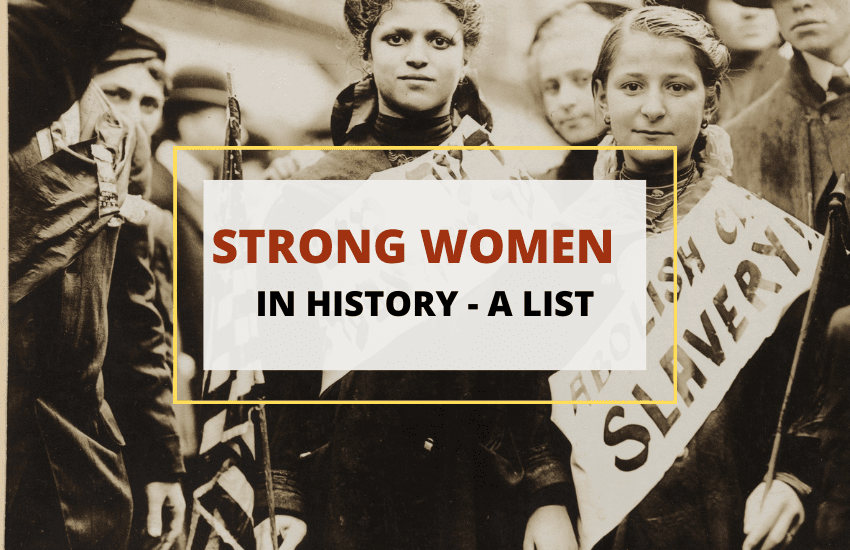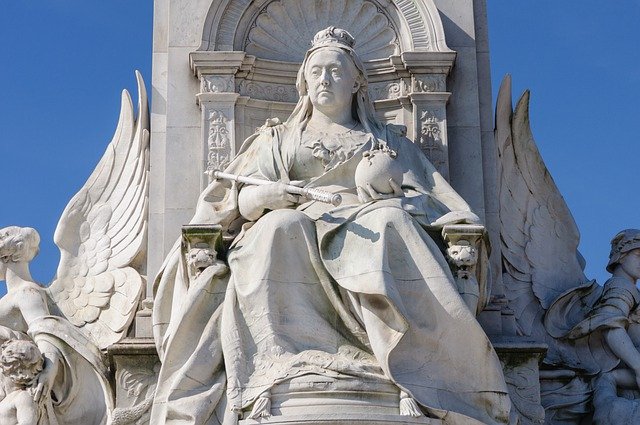
Table of Contents
Throughout history, women have made their mark by sharing their skills, talent, courage, and strength whenever they are needed. This was not easy to do, considering how women used to have no voice and no rights in society in the early days.
Here is a list of 20 strongest women who have made significant contributions to the world in their own way. During their time, each of these women went beyond the call of duty, broke through social norms, and challenged the status quo as they responded to a higher calling.
Cleopatra (69 – 30 BC)
The last pharaoh of Egypt, Cleopatra was part of the Ptolemy dynasty that lasted for almost 300 years. While many stories and folklore depict her as a seductress with unmatched beauty, what really made her attractive was her intelligence.
Cleopatra could converse in more than ten languages and was well-versed in many topics, including mathematics, philosophy, politics, and astronomy. She was a well-loved leader and helped grow the Egyptian economy through successful partnerships with Eastern traders.
Joan of Arc (1412 – 1431)
Many Christians around the world know the story of Joan of Arc, one of the most popular heroines and martyrs of her time. She was a peasant girl who had led the French army and successfully defended their territory against invasion from England during the Hundred Years’ War.
She claimed to have received guidance from saints and archangels who communicated with her as voices in her head or through visions. This eventually led to her prosecution by the Church as a heretic, for which she was burned alive at the stake. Today she is a proclaimed saint by the Roman Catholic Church and a national hero in France
Queen Victoria (1819 – 1901)

Victoria was a popular British monarch whose reign was so distinctive that it has since become known as the “Victorian Era”. Though she was quite far from the line of succession, Queen Victoria eventually inherited the throne due to a lack of successors from the previous generation.
Queen Victoria’s reign was marked by a time of industrial expansion and modernization for England. She was the mastermind in re-shaping the British monarchy while expanding the kingdom’s territory and building an empire. She also made great contributions to the abolishment of slavery, the improvement of the education system, and the promotion of workers’ welfare in England.
Zenobia (240 – 272 AD)
Known as the “Warrior Queen” or the “Rebel Queen”, Zenobia led her kingdom to rebel against the dominant Roman Empire during the 3rd century. Palmyra, a major trading city in ancient Syria, served as her base as she conquered territories in Syria, Lebanon, and Palestine. She broke free from the control of Rome and eventually established the Palmyrene Empire.
Indira Gandhi (1917 – 1984)
As India’s first and only female prime minister to date, Indira Gandhi is most notable for spearheading India’s Green Revolution, making them self-sufficient, particularly in the area of food grain. She also played a major role in the Bengali war, leading to Bangladesh’s successful separation from Pakistan.
Empress Dowager Cixi (1835 – 1908)
The longest-ruling empress and one of the most powerful women in Chinese history, Empress Dowager Cixi was the authority behind two under-aged emperors and essentially ruled over the empire for almost 50 years. Despite having a controversial reign, she is credited for the modernization of China.
Under the rule of Empress Dowager Cixi, China implemented improvements in the fields of technology, manufacturing, transportation, and the military. She also abolished several ancient traditions such as foot binding for female children, pushed for women’s education, and banned brutal punishments that were rampant at the time.
Lakshmibai, the Rani of Jhansi (1828-1858)
An icon representing India’s struggle for freedom against British rule, Lakshmibai was the Hindu Queen of Jhansi who also served as one of the leaders in the 1857 Indian Rebellion. Growing up in an unconventional household, she was trained in self-defense, shooting, archery, and horsemanship by her father, who was a court advisor.
When Britain wanted to annex the independent princely state of Jhansi, Rani Lakshmibai assembled a rebel army that included women in order to defend their freedom. She led this army in the war against British occupation and eventually lost her life in combat.
Margaret Thatcher (1925 – 2013)

Famously dubbed the “Iron Lady”, Margaret Thatcher was the first female Prime Minister of the United Kingdom and had the longest term of the 20th century. Before becoming a prime minister, she served in various cabinet positions and was the Education Secretary at one point.
Margaret Thatcher was instrumental in bringing about government reforms in education, health, and taxation. She also led the country’s involvement in the 1982 Falklands War, where they successfully defended their colony. After resigning from office in 1990, she continued with her advocacies and established the Thatcher Foundation. In 1992, she entered the House of Lords and became Baroness Thatcher of Kesteven.
Hatshepsut (1508 BC – 1458 BC)
Hatshepsut was an Egyptian pharaoh who is credited with being the first female ruler to have full authority equal to that of a male pharaoh. Her rule, which occurred during the 18th dynasty, is considered to be one of the most prosperous periods of the Egyptian Empire. She marked her reign with significant improvements in the kingdom’s architecture, building roadways and sanctuaries, as well as gigantic obelisks and a mortuary that became one of the architectural wonders of the ancient world. Hatshepsut also led successful military campaigns in Syria as well as in the regions of Levant and Nubia, further expanding their trade network.
Josephine Blatt (1869-1923)
Using the stage name “Minerva”, Josephine Blatt paved the way for women in the area of wrestling. She was the first female to be awarded the world champion in wrestling around the 1890s. Some records claim that she is actually the first wrestling champion of any gender.
Josephine started her career on the circus stage and in Vaudeville, where she first used her stage name as she toured with her troupe across North America. During the time when she first attempted wrestling, women were banned from the sport, which is why no clear records of her earlier accomplishments can be found. However, her involvement in the sport changed its course for women. She is credited with a lift of more than 3,500 pounds, which is equivalent to the weight of three horses.
Wrapping Up
From the military to trade, education, architecture, politics, and sports, these women have shown the world that they are not inferior to men at all. On the contrary, they exhibited exceptional skills, grit, and talent, which enabled them to make significant contributions to society. While not all stories ended well, and some of these heroines were forced to sacrifice their lives in exchange for a bigger cause, their names are forever etched in history and will never be forgotten by future generations.








